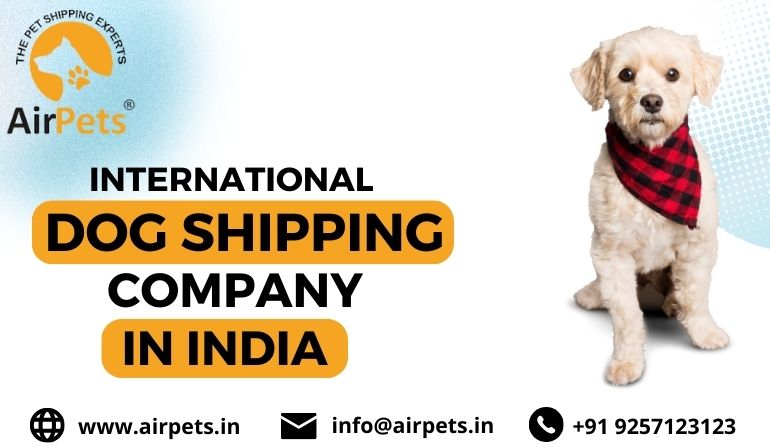Tips for Travelling Overseas with Pets
Relocating internationally is a big decision that requires quite a bit of forethought and planning. This goes double when you have pets to bring along. Making the move with pets overseas can be a stressful experience, especially for the furry family member.
However, unless your pet has an underline medical condition making it unfit to travel or the country, you’re moving to is inhospitable to your pet, there are very few reasons for not taking your pet along with you. Moving internationally with your pets isn’t as difficult as you might think. It can be a lot to take on in addition to all of the other moving-related planning you inevitably have to get done, but if you take all the necessary steps, it can be fairly smooth sailing.
If you are planning on moving abroad and hoping to bring your furry friends on your international move, here are a few tips you should know about moving overseas with pets.
Research Pet Import Laws of your Destination
Import procedures and regulations are different for every country of origin and destination, with some much more rigorous than others. So, it is necessary to plan ahead and in time. Like your own visa process, the process for setting up to make the move with pets internationally can be a long one. If you don’t start early enough, you’ll have to make arrangements for your pet to come to you at a later time, which may not be ideal for you or your pet.
Rabies and other vaccinations, Titer tests, quarantine periods must all be considered and factored into your timetable for planning your trip with your pet overseas.
Veterinary Check-in
Before moving overseas, you should take your pet to your vet and request a full medical checkup. You should also have your pet completely checked over to ensure it is fit to travel by air, considering its age, any existing medical conditions or its breed. Some dog and cat breeds can be at an elevated risk for flight travel and are susceptible to heat stroke or breathing problems when they’re exposed to stress or extreme heat.
All necessary vaccinations for your pet should be kept up-to-date and an international health certificate for your pets signed off by a licensed vet is critical if you plan to take your pet abroad.
Airline Regulations
Researching various airlines for their pet relocation options is a must as they can have different regulations. Many pet-friendly airlines have kennel facilities in transit, where local staff maintains the well-being of pets by giving them food and water.
There are three different ways a pet can travel on an airplane: with the owner in the cabin, as accompanied (or excess) luggage in the cargo hold, or as manifest cargo (typically without the owner). Unfortunately, unless your pet is a certified service dog or is small enough to be within the size limits of the airline, it will not be allowed to travel with you in the cabin. However, contrary to myth, the cargo hold where the pet travels is pressurized and climate-controlled.
This means your pet travels in comfort, even when apart from their owner.
Identification
Pet microchips are very important in pet identification. The microchipping procedure is painless and mandatory for import to most countries. It is best to make sure that your pets are fitted with an ISO Standard 15-digit microchip.
Make sure your pet has a collar and ID tag and their name and details are clearly marked on its crate. Make up a file to carry with you containing copies of all the paperwork, vaccination certificates and microchip number. It may also be useful to include a photo of your pet, details of its species, breed, colour, and size.
Preparing your pet for the move
Travel crates are a must for travelling by air with your pet. Travel crates must conform to IATA Live Animals Regulations and ensure your pet has enough space to turn about normally while standing and to lie in a natural position. The more familiar your pet is with their crate; the less stressful travel will be. Aim to start crate training as soon as possible after you’ve decided to move. You can put in your t-shirt that smells like you in your pet’s crate to make it feel less anxious during the journey.
Hire the Experts
Many myths surround pet safety and air travel, which perpetuate anxieties that a pet owner has when they first start thinking about moving their pet. Pet relocation agencies help pet owners to lessen some of their stress while moving with their pets by selecting appropriate flight arrangements, carefully reviewing the import and export documents, and counseling the owner about the intricate details of the pet’s move. Some pet relocation companies also arrange
door-to-door moves, clearing the pet through customs on arrival, and delivering the pet to their owner’s new home.
Through careful planning and open communication with a pet relocation agency, your pet will travel safely, soundly and in accordance with the laws of your new home.
For a hassle-free approach towards travelling with your pet, it is highly suggested to engage the services of a trusted pet relocation agency. We understand how stressful moving to a new place can be, despite having to do it with a pet as well as during the middle of a pandemic. Contact us today by calling +91-9257-123-123 or write to us at info@airpets.in so that we can assist with your future relocations and travelling with your pet.
Looking
for Pet Relocation Services in India or International Pet Transport Services? AirPets is widely regarded as one of India’s
most trusted Pet Relocation Services Experts with a reputation built on
relocating pets safely. AirPets is managed by a dedicated team of pet
relocation specialists.



Comments
Post a Comment